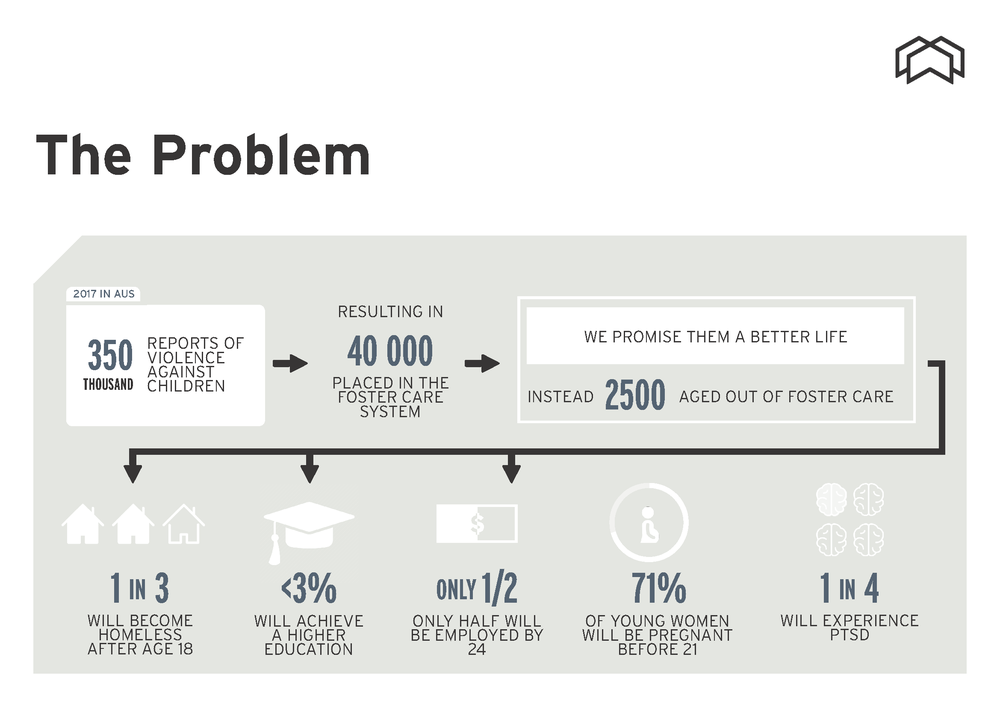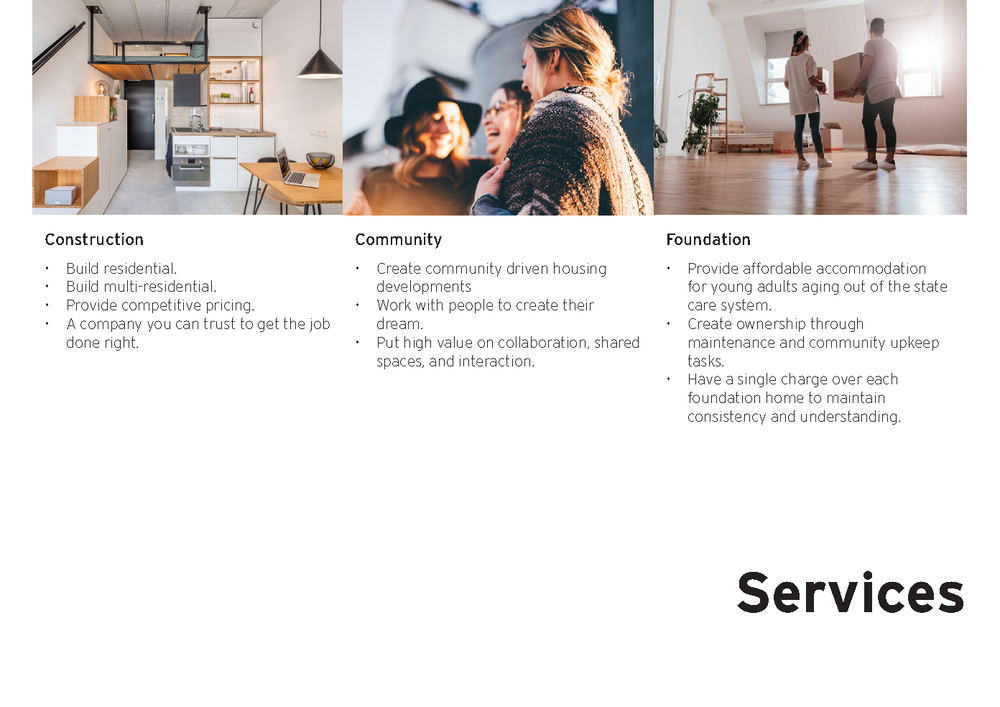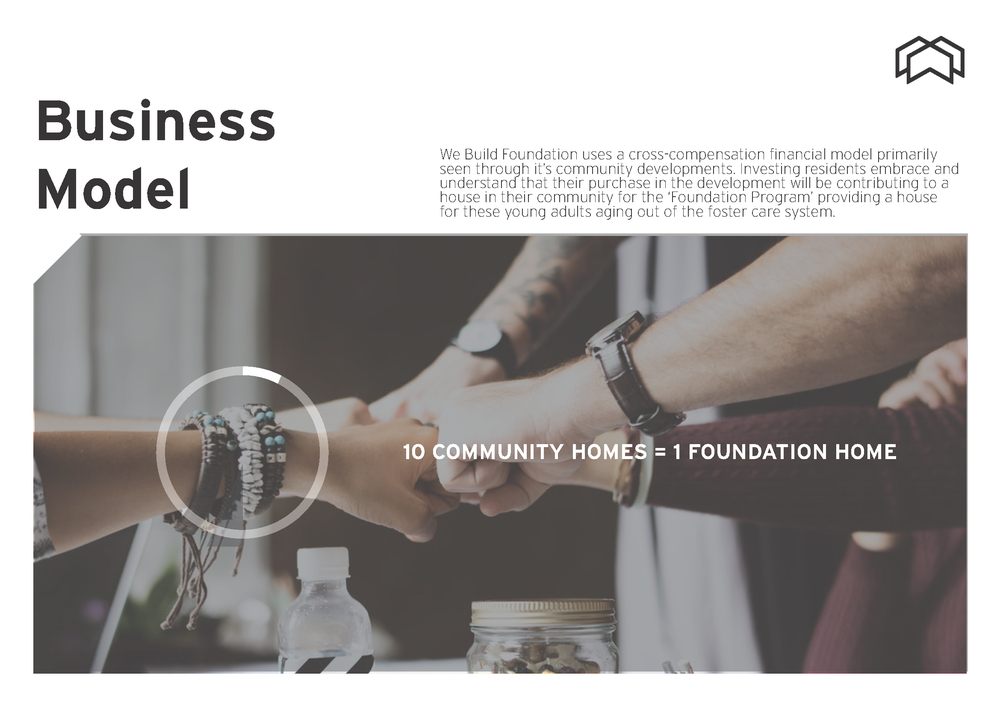Honorable Mention
We Build Foundation
The ‘We Build Foundation’ is our answer to providing a fair go for youth ‘aging out’ of state care
Solution
The idea surrounding a foundation home is to provide safety, support, ownership, and education to young adults ‘aging-out’ of the state care system. Success begins when they gain hope for the future and dare to dream. Success is feeling stable, being confident in their abilities to provide for themselves, and most important, feeling worthy of that success.
Project Description
We Build Foundation is a cross-compensation model social enterprise, essentially split into three services:
Construction – This is the product and service segment of the enterprise focusing on residential and multi-residential constructions with an emphasis on sustainable and ethical practices. Profits from these projects are put toward the purchase of land for our community development projects.
Community – These are future-driven community-focused development projects that put a high value on collaboration, shared spaces, and interaction. Residents of the project champion the fact that profits from their builds will go towards an extra community residence for a young adult in the foundation program.
Foundation – The ‘why’ of the We Build Foundation. Providing affordable and nondiscriminatory housing for young adults aging out of the care system. This provides them with consistency and responsibility, as well as support and education for a successful transition to independence.
Overview of the Solution
While the ‘National Framework for Protecting Children 2009-2020′ states that out-of-home care (OOHC) is a last resort for keeping children safe. For over 40 000 Australian children, home life was so damaging with cases of neglect, abuse, and violence that OOHC was the only option left. These children are promised a better life, but once they leave the system they are often faced with homelessness, poor job prospects, and an unsupported transition to independence.
After significant time in research, it was concluded security, support, ownership, and education are the four main elements required for a successful transition to independence. These areas are all effectively targeted within our ‘foundation’ service.
Security – A home provides security to a young person who is often overlooked for other properties and opportunities. It brings them safety and consistency while a permanent address gives them access to welfare assistance, education, job applications.
Support – Due to moving around, living in group homes, and being pushed into independence so suddenly many of these young adults lack basic life skills such as: paying bills, budgeting, cooking, cleaning, good hygiene and personal health. Having a ‘parent’ around to teach these valuable skills gives them the basic support most other young adults get from home.
Ownership – Many of these young adults will have come from backgrounds where they have little to no personal belongings, and have not had to take care of anyone but themselves. Handouts are often ill received and not as helpful as you might think. Making these young adults pay, with certain subsidies, conditions and supports helps them to take responsibility for their place, and promotes a healthy step to becoming fully independent.
Education – Further education is by no means the only way forward for these young people, but providing them with an opportunity that is often taken for granted by their peers can be lifechanging. And if education is not their chosen path, helping them present themselves best for job interviews and in resumes are invaluable skills moving forward.
If we can support these young adults aging out of care, change the trajectory of their lives and give them the tools to succeed. We could crack the cycle that is the care system and expect declines in homelessness, mental health issues, substance abuse and homelessness, as well as increases in employment and education.
PROJECT TEAM
Britney Williames
INSTITUTION
Torrens University Australia & Think Education
Group, Laureate International Universities, Australia
Category
System
FACULTY/COURSE ADVISOR
Mieke Leppens, Mark O’Dwyer and Jacqueline Casey



